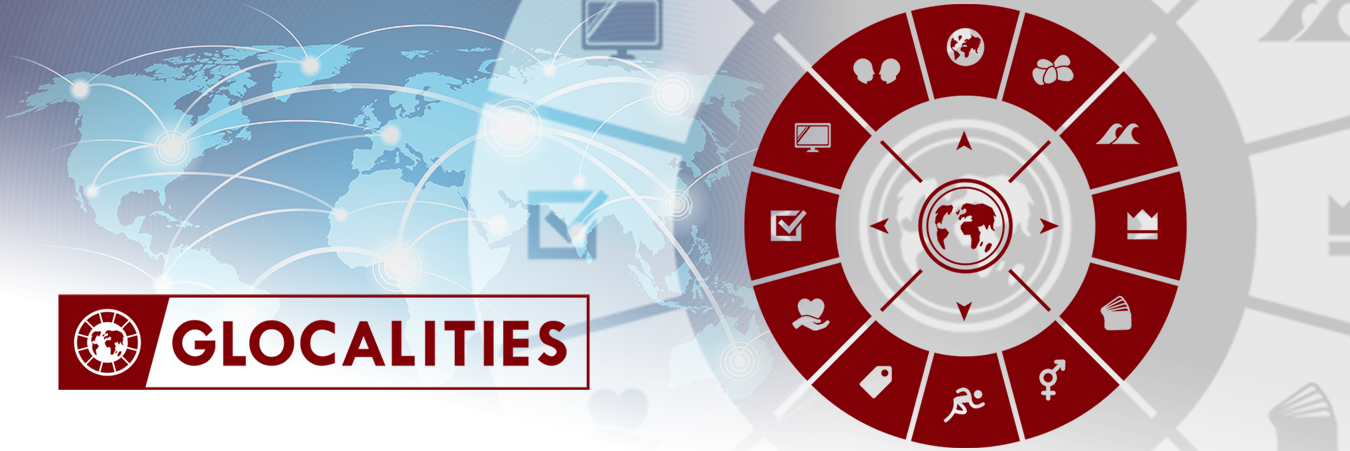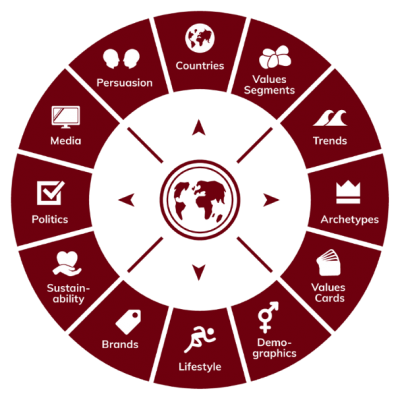How to Quantify Qualitative Data: A Look at Research on Trust in the UN

 29 January 2021
29 January 2021
By Martijn Lampert, Research Director, Glocalities
In this Q&A, Martijn Lampert, Research Director, Glocalities, shares a methodology he and his team used to measure international trust in the UN. He argues that research focusing on the links between values, issues and cultures is key to quantifying qualitative data.
What is Glocalities?
Glocalities is an international research program specialized in understanding and quantifying the drivers of human behavior: cultural values, belief systems, issues, aspirations, and concerns. Based on interviews held with more than 250,000 people from 40 countries, we have mapped the cultural values and behaviors of population segments within and across cultures. As our name – Glocalities – suggests, our work consists of zooming ‘’in’’ and ‘’out’’ on citizens’ values and behavior to reveal the interdependencies between global and local social issues. Since 2014, we have helped policymakers and communications professionals become more effective in dealing with international challenges such as sustainability, audience analysis and intercultural communications. Our work enables them to step into the shoes of people from around the world and rethink communications from the values perspective of citizens.
What inspired Glocalities to produce its 2020 quantitative study on UN Trust?
The UN was celebrating its 75th anniversary, as the world contended with concurrent global crises. Therefore, we felt the need to share the unique research insights we have gathered about trust and the UN. Most well-known international studies into ‘trust’ merely report percentages of trust and present figures at a country level. However, we believe that it is critical to understand what lies beneath these figures. A deeper understanding of such figures required an understanding of people’s perceptions and values, within and across countries. Such insights are often missing in other studies done on trust.
What were the main outcomes of the survey?
The survey, undertaken in 25 countries, showed that half of the respondents (47%) trust the UN. This is significantly higher than trust in other (inter)governmental institutions such as the EU (38%), NATO (35%), government (31%) or parliament (26%). Trust in the UN is highest among young people (18-24) at 50%.
Whilst looking more closely at the results, using the Glocalities methodology (shown below), we discovered that people who trust the UN have a positive, energetic, and determined mindset. And it seems that the reason people place trust in the UN is much more layered than is often thought. While the UN is sometimes attacked for being a ''globalization elite'' project, this attitude is not reflected in its international support base. Trust in the UN is not explained by a globalist and nationalist polarity, but mostly by citizens being proud of their own country while simultaneously recognizing the interdependence of nations that need to cooperate in an international environment. The high level of trust in the United Nations mirrors the energetic and cooperative mindset of its supporters. These survey results show that there are many opportunities for countries and world leaders to build upon the trust citizens have entrust in them, and to work together in solving global challenges such as the COVID-19 pandemic, rising poverty levels and climate change. The Glocalities survey reveals that people from around the globe recognize that the world needs to live up to the ideals of the UN.
Can you elaborate on the methodology your team used to measure Trust in the UN?
Our methodology focuses on understanding values, lifestyles and trends among citizens. As illustrated in the Glocalities compass (see figure 1), we use 12 tools in our research – these vary from socio-cultural trends, values segments, archetypes, politics, sustainability, persuasion tactics, countries, demographics and lifestyle. Based on years of research, we have learned that many of these topics are interrelated. In particular, trust in institutions such as the UN, parliaments and education systems is an important part of our studies. We measure whether or not people show trust in a multitude of institutions and directly relate these findings to their social values, emotions, lifestyles and sustainability topics from our compass.
Figure 1: Glocalities Compass - Researching the interrelations between values, issues and cultures

Glocalities insights are based on system thinking and pattern analysis. In order to unlock our database to a wider audience, we’ve decided to develop the “World of Glocalities Insights Solution” with a multidisciplinary team. This is the first tool of its kind, as it speaks to both the analytical/rational and the visual/creative part of the brain, based on survey data. The online application allows you to envision any international or national group of citizens and lets you view the world through their eyes. Shortly after I had the vision of creating such a tool for visually unlocking quantitative international data, we brought together a multidisciplinary team including a front- and back-end IT developer, a methodologist, an app designer, a data processor, and an online research specialist. I was overseeing the development based on my experience in conducting and presenting cross-cultural values-based research. Since the beta version in 2014, we have implemented many iterations and learnings. We keep on developing and improving the application and each year we add new countries and datasets to its environment.
It is interesting to see a study quantify a qualitative term like “trust” the way you have in this report. What lessons learned or best practices could you share with people seeking to “better measure” qualitative concepts for improved decisions making?
After decades of primarily focusing on economic growth, policy makers are increasingly recognizing the limits to that model. The climate crisis and the COVID-19 pandemic once more make clear that a a shift in research is needed: policy researchers need to look at cultural diversity and have a much better understanding of qualitative concepts. Social researchers increasingly need to be able to relate to other disciplines, cultures, audiences, and paradigms and be able to quantify and visualize qualitative topics. Think for example about qualitative terms such as trust, sharing, cooperation, freedom, justice, peace, et cetera – we need to be able to measure these terms more effectively for improved decision making. Indeed, a new level of thinking and research is needed for combining perspectives and conducting researching ‘’out of the box’’. That is why we take the citizens’ perspective and systems thinking as a starting point and, from there, look at issues by extracting quantitative data from these broad concepts.
For example, when researching narratives of meaning, we often look at the world of mythology and the role that archetypes such as the Hero and the Caregiver have played in stories since ancient times. We believe that this kind of analysis can help identify sentiments of people today. For example, the data of our UN trust study revealed that the archetype of the Everyman (valuing friendship and togetherness) appeals to people who trust the United Nations, while the archetype of the Rebel (independent and recalcitrant) is more typical of people who distrust the UN. This suggests that the UN may want to tap into the universal value of friendship in its policy and communications strategies. Indeed, friendship is one of the highest values of humanity, which we also discovered in a study with religious world leaders, who called for friendship across religions.
In conclusion, I would advise other researchers to consider the benefits of the research methods outlined in this blog piece. I strongly believe in the importance of looking beyond our own disciplines and learning from combining various datasets, and types of data. Most importantly, it is crucial for researchers to seek to quantify qualitative data, even if at face value it would seem challenging to do so.
Note: The views expressed herein are those of the author and do not necessarily reflect the views of the United Nations.

